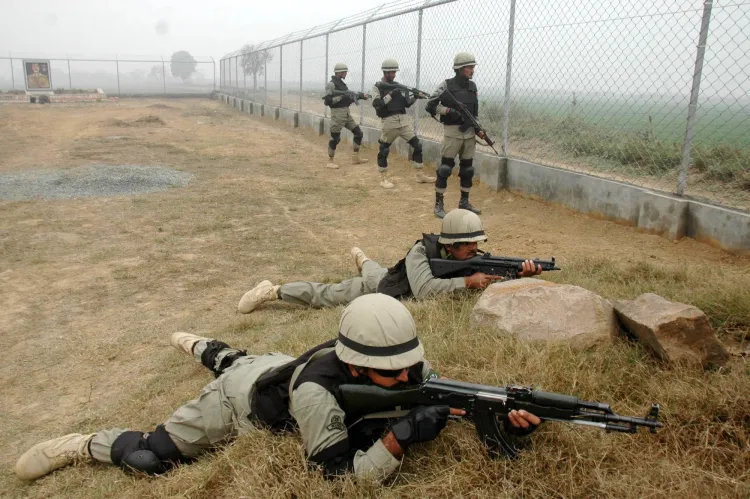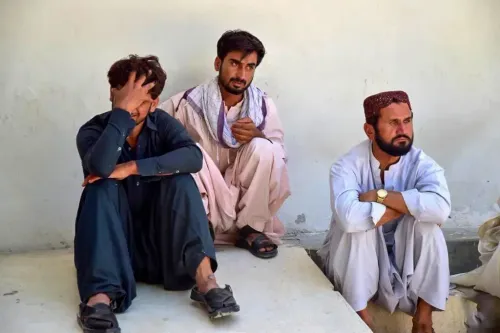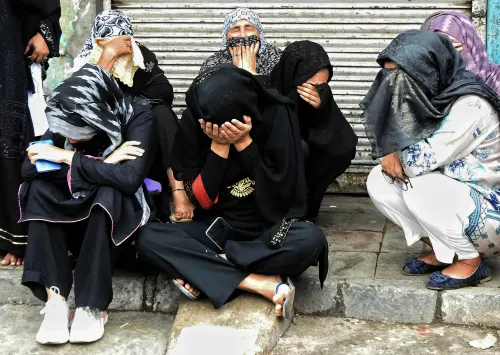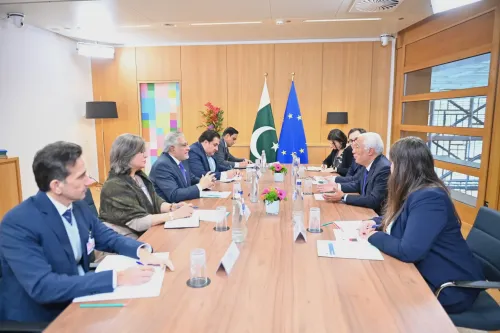How Valuable is US Intervention Amid Rising Tensions at LoC?

Synopsis
Key Takeaways
- US intervention is crucial in the escalating tensions between Pakistan and India.
- The Pahalgam attack has intensified hostilities.
- The Resistance Front has claimed responsibility for the attack.
- Other countries are stepping in to mediate peace.
- Historical grievances fuel ongoing tensions.
Islamabad, April 28 (NationPress) The United States has initiated dialogues with both Pakistan and India at various levels to alleviate the rising tensions between the two nations following the recent Pahalgam attack, as reported on Monday.
"This is a developing situation, and we are closely monitoring the events. We have engaged with the governments of both India and Pakistan on multiple fronts. The United States urges all parties to collaborate towards a responsible resolution," a spokesperson from the US State Department was quoted by local media in Pakistan.
Hostilities between the nuclear-capable nations intensified after the Pahalgam attack, which tragically claimed the lives of 26 innocent civilians. New Delhi has accused Islamabad of supporting the attack through cross-border terrorism, a claim that Pakistan has firmly denied.
Reports indicate that the Resistance Front, linked to the Pakistan-based Lashkar-e-Taiba, has taken responsibility for the attack.
According to senior analyst Kamran Yousaf, "Both India and Pakistan have adopted extremely firm stances against one another. They have halted trade, canceled visas, closed borders, and India has suspended the Indus Waters Treaty (IWT), while Pakistan has restricted its airspace. The strong rhetoric from both sides has brought them to a critical juncture, with war appearing as the only remaining option."
Yousaf added, "The US intervention holds significant importance. Washington's influence could indeed encourage both nations to retreat from their inflexible positions."
Other nations, including Iran and Saudi Arabia, have also offered to mediate peace between India and Pakistan. Experts suggest that Saudi Arabia and the UAE have previously played crucial roles in encouraging dialogue between the two countries.
Yousaf highlighted, "Through their influence, the UAE and Saudi Arabia have successfully brought India and Pakistan to the negotiation table via backdoor discussions. This led to a ceasefire along the Line of Control (LoC) during a period when diplomatic and trade relations were at a record low, and both sides publicly claimed they would not engage with each other."
He noted that India is a vital ally for Washington in countering China's influence in the region, while Pakistan remains a US partner in monitoring activities in Afghanistan.
Experts contend that while US intervention is crucial in addressing the current tensions between Pakistan and India, the administration under Donald Trump may not engage deeply in the issue.
"India has long-standing concerns about terrorism that is perceived to originate from or be supported by Pakistan. Conversely, Pakistan harbors a belief that India aims to destabilize it. This cycle of tension recurs every few years. Currently, there appears to be no US interest in diffusing the situation," stated Hussain Haqqani, a former Pakistani Ambassador in the United States.









